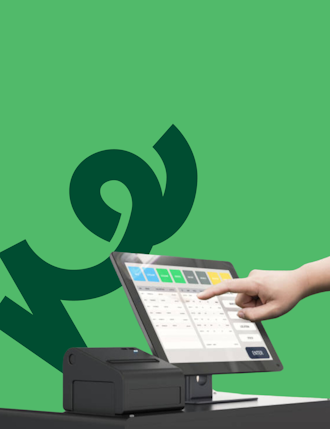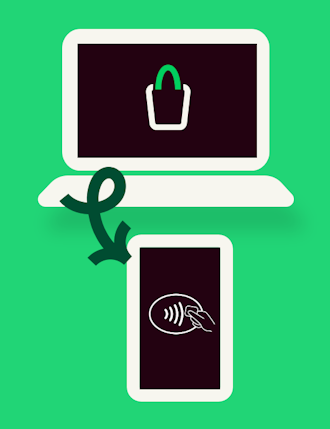How the digital wallet is changing the digital payment landscape and what it means for business

Digital wallets (aka e-wallets or mobile wallets), such as Apple Pay, Android Pay and Google Pay have experienced significant growth over the last few years, with roughly half of global e-commerce payment transactions in 2023 made via mobile wallets, and they’re predicted to take over as much as 61% of global e-commerce transactions by 2027.
More people are using digital wallets, which is a good thing for businesses, but digital wallets will continue to change the payment landscape and vendors and merchants need to understand what these changes are so they can move with the times and take advantage of them.
Why have digital wallets become so popular?
E-wallet payment systems offer the two things consumers value most when transacting, the first of which is convenience. Also, the notion of ‘why have many when few will do’ means that having all cards on one platform during in-person payment transactions is a lot more convenient than having many cards and coupons in physical form. What’s more, digital wallets now come in wearable form too, such as watches, chains and rings, which adds to their convenience even more.
Secondly, digital wallets offer security. Transaction data is tokenized, replacing sensitive data, such as credit card numbers or bank account details, with a unique identifier called a token. This token is then used to represent the original data during transactions, adding an extra layer of security and preventing hackers from decrypting data. Secondly, where deployed biometric authentication adds an extra layer of security, which is hard for hackers to bypass. Finally, device security features and fraud monitoring further enhance protection. Together, all of these features make digital wallets a secure payment solution and perhaps one of the biggest reasons why 51% of people say they would stop shopping with a merchant that doesn’t accept payments from digital wallets.
The three types of digital wallets and the distinctions between them
There are three types of digital wallet widely available to users today. They are:
Open Digital Wallets:
- Examples of open digital wallets include Apple Pay, Google Pay, and PayPal.
- Open digital wallets are versatile and can be used across multiple merchants and platforms.
- They are not tied to any specific retailer or brand, allowing users to make purchases from a wide range of merchants.
- For businesses, accepting payments via open digital wallets provides convenience and flexibility to customers, leading to higher conversion rates and increased sales.
- Open wallets support various payment methods, including credit/debit cards, bank transfers, and even cryptocurrencies, catering to diverse customer preferences.
- They enhance security by tokenizing payment information and utilising advanced authentication methods, reducing the risk of fraud and chargebacks for businesses.
- Open digital wallets also offer integration opportunities with loyalty programmes, marketing campaigns, and customer relationship management (CRM) systems, enabling businesses to deliver personalised experiences and build long-term customer relationships.
Closed Digital Wallets:
- Examples of closed digital wallets include Starbucks' mobile app and retailer-specific payment apps like Walmart Pay.
- Closed digital wallets (aka: closed loop wallets) are proprietary systems operated by specific companies or organisations.
- They are typically tied to a specific merchant, brand, or service provider.
- Users can only use closed wallets to make purchases from the issuing company or its partners.
- For businesses, closed digital wallets offer a direct channel to engage with customers and encourage brand loyalty.
- They provide valuable customer data and insights that can be used to personalise marketing efforts and enhance the overall customer experience.
- By offering closed digital wallets, businesses can streamline transactions, offer loyalty rewards, improve their brand visibility and drive repeat purchases, ultimately increasing revenue and customer retention.
There is another, less common type of digital wallet called the ‘semi-closed’ wallet that allows users to make transactions within a specific group of merchants or services. Unlike closed wallets tied to a single merchant, semi-closed wallets work across multiple merchants within a network but aren't as flexible as open wallets, which are accepted anywhere. Users can load funds and use them for purchases or services within the network, often including features like bill payments or mobile recharges. Semi-closed wallets, like Paytm or PhonePe in India, are regulated for user protection, with rules on balances, transactions, and customer verification, offering both users and businesses a balance of convenience and security within a defined ecosystem.
What are Digital Identification Wallets and why are they good for businesses?
The European Union has recently introduced digital identification wallets aimed at providing citizens and businesses with a secure and convenient means of managing personal identity information online.
The introduction of digital identification (ID) wallets represents a huge opportunity for businesses, as it is a significant step towards enhancing digital security and authentication, particularly in the context of increasing security and speed of online transactions and services. This means there will inevitably be a huge improvement in customer experience, which has the potential to increase profitability.
The benefits of digital identification wallets are applicable across various industries, especially those that involve online transactions, customer registration, and identity verification. This includes sectors such as finance and banking, e-commerce, healthcare, travel and hospitality, telecommunications, and even government services. In finance and banking, digital ID wallets facilitate secure and efficient customer onboarding and transaction authentication. For e-commerce based merchants, they streamline the checkout process and enhance security for both buyers and sellers. In the world of healthcare, digital ID wallets help in securely managing patient information and accessing medical records. Similarly, for travel and hospitality based businesses, they simplify the check-in process and enable seamless booking experiences. Telecommunications companies can utilise digital ID wallets for subscriber verification and service activation, and government agencies can leverage them for citizen identification and access to public services.
Why merchants need to embrace digital wallets
If merchants don’t keep pace with advances in digital wallet technology then they could find that they offer a slower, less convenient and ultimately less secure service than their competitors.
One crucial way of doing this is by looking at their current payment processes and whether they can upgrade them to include other payment methods.
By leveraging digital wallet technology, merchants can offer seamless payment experiences across various channels, especially in store.









